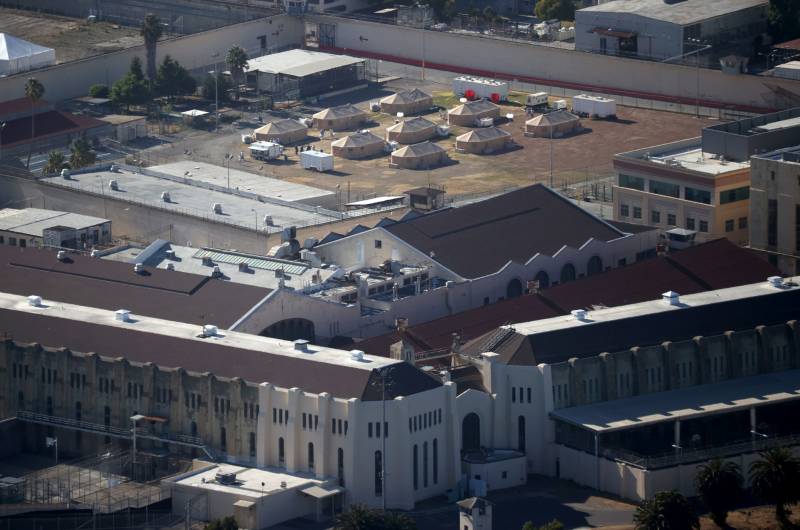Liz Gransee, a spokeswoman for California Correctional Health Care Services, wrote in a Dec. 15 email that the men were moved to “safer housing” at California State Prison in Corcoran.
“It’s important to note that every safety precaution is taken on any patient movement,” Gransee wrote, “including testing before and after any moves, quarantining upon arrival at the new housing location, the use of N95 masks by all, and sanitation of all housing spaces prior to any movement.”
The public defender filed an emergency motion Wednesday to temporarily stop the transfers until Judge Howard can “fully consider” whether it’s safe.
California’s Department of Corrections and Rehabilitation suspended further COVID-19 related transfers last week.
“My clients are terrified of transferring,” Deputy Public Defender O’Hanlon said. “They know the transfer process involves being confined in small spaces with several people for several hours and then getting to a new place where they don't know what's there.”
The 26 men transferred from San Quentin last week went from a prison with four active cases at the time to one with 50.
Noting that most state prisons are at or over capacity, O’Hanlon doubted any institution could safely absorb transfers of medically vulnerable incarcerated people.
“You can't just pack them in like sardines somewhere else,” she said. “You have to put them in a place where they can be safely housed, practice social distancing and avoid dorm settings.”
San Quentin’s summer outbreak resulted from the botched May 31 transfer of 121 people from the California Institution for Men in Southern California. Ironically, the men — all at high risk for COVID-19 — were moved to San Quentin from Chino to protect them from getting infected as the virus raged at the Southern California facility.
At a state Senate hearing in June, Clark Kelso, the federal receiver in charge of prison medical care, took full responsibility for approving the transfer. Kelso said the transfer was conducted “too quickly” and was “a big mistake.”
At the time, people incarcerated in state prisons could only be transferred if they had tested negative for the virus beforehand, but as Kelso said he later learned, some men received those tests up to two weeks before their departure.
Kelso issued new protocols for transfers in August, including same-day testing for COVID-19, retesting and isolation upon arrival at the new prison.
Those new protocols were cited in a recent appellate ruling as the reason that transfers can be considered a safe alternative to releasing medically vulnerable people.
Order to Halve San Quentin Population Appealed to California Supreme Court
Ivan Von Staich, a 64-year-old at San Quentin with respiratory issues, petitioned for release before there was an outbreak of COVID-19. Von Staich argued in a successful appeal that the prison would not be able to protect people like him if the population became infected because there would be no way to be physically distant from others.
His attorneys disclosed that prison officials ignored a key recommendation by a group of university doctors and epidemiologists who toured San Quentin State Prison in June. The team of health experts from UCSF and UC Berkeley urged prison officials to reduce the incarcerated population at the prison by half to allow for social distancing and quarantine of those infected.
